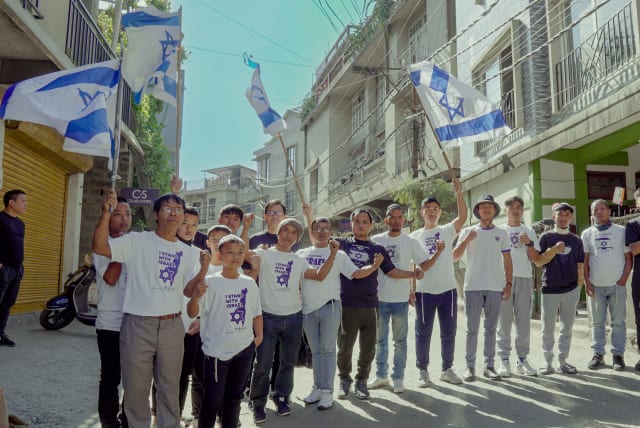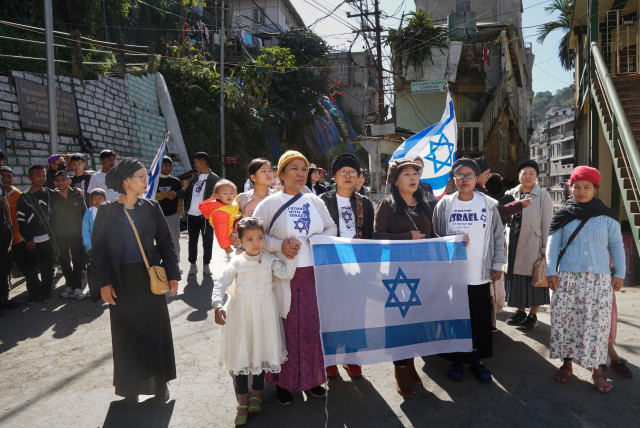Bnei Menashe: Let us make aliyah and join 'our brothers and sisters' fighting in Israel

The Bnei Menashe have repeatedly called for the Israeli government to permit them to make aliyah and join their fellow Jews in protecting their homeland.
Hundreds of members of the Bnei Menashe community from northeastern India have called on the Israeli government on Monday to let them make aliyah and join the fight with their "brothers and sisters."
The Bnei Menashe are a community from northeastern India who claim descent from the Lost Tribes of Israel. In recent years they have pushed for recognition and acceptance from the wider Jewish community, in particular from Israel in allowing them to make aliyah.
Almost all military-aged men from the Bnei Menashe community (99%) join the IDF upon making aliyah and currently have 75 members in active duty service and a further 140 recalled for reserve duty.
Women from the community also either join the IDF (10%) or perform Sherut Leumi due to religious reasons.
Around half (5,000) members of the community have made aliyah with the other half still waiting to return in India. Their life in India have come under threat doing to ongoing tribal violence, leading to nearly half of the remaining tribe (2,000) having to flee into the surrounding hills.
The Bnei Menashe are historically considered members of one of the conflicting tribes, but due to their Judaism are largely isolated from either.
Who are the Bnei Menashe?
The Bnei Menashe community says they traveled along the Silk Road, before settling in their current region of Mizoram.
Historically, the Bnei Menashe community has not considered themselves Jews with this change occurring during a period of conversion to Christianity in the region.
During the conversion to Christianity, many members of the Bnei Menahse community began to identify Menashe, son of Joseph, with their own tribal ancestor Manmasi or Manasia. They were also exiled from a beloved homeland according to their own tribal history, indeed they are not ethnically related to the surrounding people.
According to the Degel Menashe website, one of the community's web pages also cites pre-Christian prayers and chants that reference biblical figures as evidence for a connection that pre-dates Christianity, noting the similarity between Menashe, Gilead, and Ulam; and Manmasi, Gelet, and Ulam, all claimed ancestors of the community.
Bnei Menashe also partook in a festival known as chol ngol ni nikho, "the day of abstention from yeast" which Degel Menashe says is a clear connection to Judaism as no other known religion practices a similar abstention from yeast and mandated eating of unleavened bread.
Regardless of the historical background of the tribe, all have embraced Judaism and Jewishness as fundamental parts of their identity and culture, much to the chagrin of local officials who claim conversion to Judaism cultivates regional separatism.
The Bnei Menashe have repeatedly called for the Israeli government to permit them to make aliyah and join their fellow Jews in protecting their homeland.
Jerusalem Post Store
`; document.getElementById("linkPremium").innerHTML = cont; var divWithLink = document.getElementById("premium-link"); if (divWithLink !== null && divWithLink !== 'undefined') { divWithLink.style.border = "solid 1px #cb0f3e"; divWithLink.style.textAlign = "center"; divWithLink.style.marginBottom = "15px"; divWithLink.style.marginTop = "15px"; divWithLink.style.width = "100%"; divWithLink.style.backgroundColor = "#122952"; divWithLink.style.color = "#ffffff"; divWithLink.style.lineHeight = "1.5"; } } (function (v, i) { });

